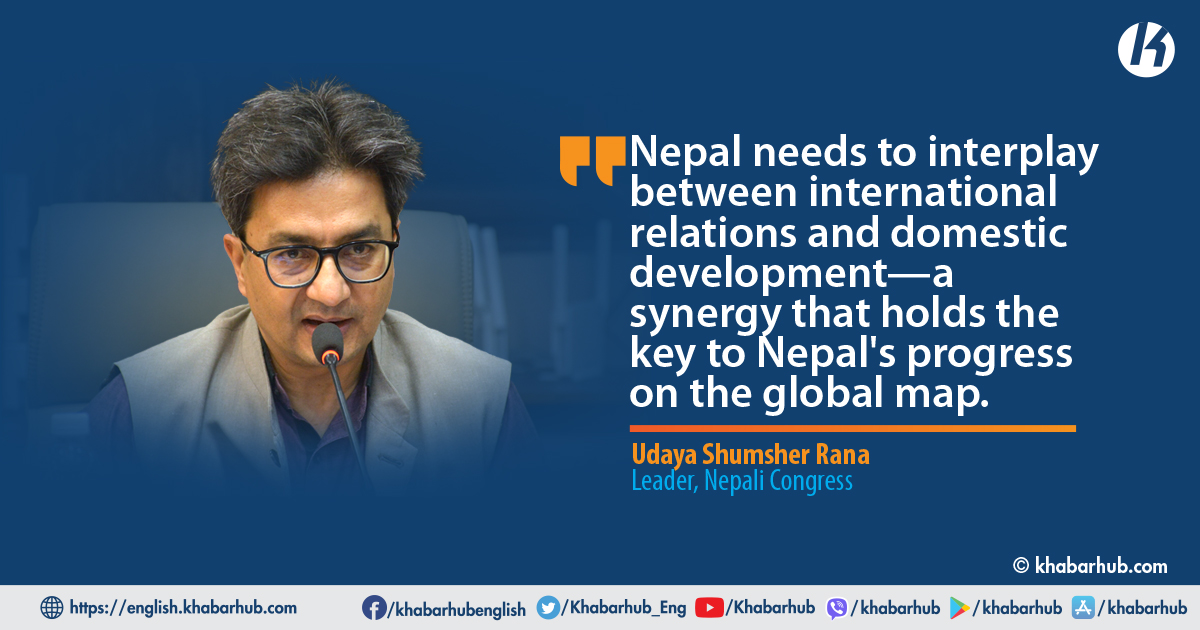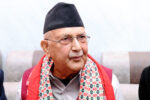In the midst of a rapidly changing global landscape, the nuances of evolving geo-political dynamics have become a subject of profound contemplation.
At the heart of insights lies a perspective that encourages us to see the heightened foreign interest in Nepal not as a looming threat, but as a corridor of opportunity.
Throughout history, the global balance of power was largely dictated by two dominant forces—the United States and Russia.
However, the present-day scenario paints a different picture, with China assuming the role that was once held by Russia.
The interplay between the United States and China, marked by competitiveness, now takes center stage.
One of the most striking observations revolves around the intricate ties between Nepal’s neighboring nations—India and China.
The inconsistency in Nepal’s approach towards China, influenced by shifting government dynamics, underpins the necessity for a comprehensive reform strategy.
What began as an era of amicable relations post the 1962 conflict has transformed into a robust economic engagement.
The economic interactions between India and China, which surged from 250 million US dollars in 1990 to an astonishing 115.83 billion US dollars during 2021-2022, underscore the evolving nature of regional dynamics.
In light of these shifts, questions naturally arise concerning the stability of Nepal’s political landscape and its implications for neighboring countries and global perceptions.
Can we scrutinize these transitional periods for insights?
The discourse also brings to the forefront the ameliorating rapport between India and China—a development that Rana views as a gateway to progress.
With China’s ascent to the status of the world’s second-largest economy and India securing the fifth position, the vast market opportunities they offer create a substantial gap for Nepal.
This prompts us to reflect on Nepal’s capacity to harness this potential. Rana places emphasis on dedicated efforts directed towards political evolution and economic advancement—a sentiment shared by many emerging economies that seek to establish strategic international alliances.
Nepal’s relationship with India and the intricacies of its shared border emerge as another focal point.
We also need to underscore the importance of a cautious approach, in consideration of India’s vigilant border security measures.
The occasional border-related complexities accentuate the need for Nepal to clearly define its intentions.
The challenge lies in achieving clarity amidst complex realities, particularly given Nepal’s history of misinterpretations.
Meanwhile, the case of the Millennium Challenge Corporation (MCC) serves as a striking example of the fluid nature of Nepal’s political stances.
Nepal also should underscore the significance of internal coherence, especially during diplomatic negotiations, even in the face of shifting government leadership.
The Budhi Gandaki project encapsulates the dilemma of inconsistency, extending not only to established political parties but also to new entrants.
To foster a more consolidated approach to economic development, we also need to involve the Ministry of Foreign Affairs in formal interactions between Nepal’s civil aviation and its Indian counterpart.
This proposal takes on even greater significance, given the Bhairahawa Airport air route.
The theme of consistency in dialogues with foreign counterparts remains a key tenet.
As a reminder, Nepal needs to interplay between international relations and domestic development—a synergy that holds the key to Nepal’s progress on the global map.
Despite changes in government, both economic and political agendas must remain resolute.
The inconsistency in Nepal’s approach towards China, influenced by shifting government dynamics, underpins the necessity for a comprehensive reform strategy.
Instances of collaborative investments by India and China in specific projects underscore the potential of cross-border partnerships.
Reflecting on Nepal’s history, we even had cooperative efforts even during the Panchayat era, exemplifying the significance of diplomatic ties.
Drawing a parallel with India’s ability to retain its distinct position amid global turbulence, Nepal needs to recalibrate its international policies to align with present realities.
Nepal should embrace foresight, consistency, and reform as guiding principles for shaping the country’s journey on the global stage.
With an appreciation for historical shifts and contemporary trends, we can navigate the evolving geo-political landscape, leveraging opportunities for our nation’s advancement.
It is evident that understanding the complexities of global dynamics is not just an intellectual pursuit but a crucial endeavor that shapes our nation’s future.
As a reminder, Nepal needs to interplay between international relations and domestic development—a synergy that holds the key to Nepal’s progress on the global map.
(Based on the speech delivered by Nepali Congress leader and parliamentarian, Udaya Shumsher Rana in a program titled “Challenges and Opportunities in Nepal’s Foreign Policy” at Pavilion Hall in Kathmandu)









Comment